Here's why this big time tipster thinks phones are becoming like PCs!
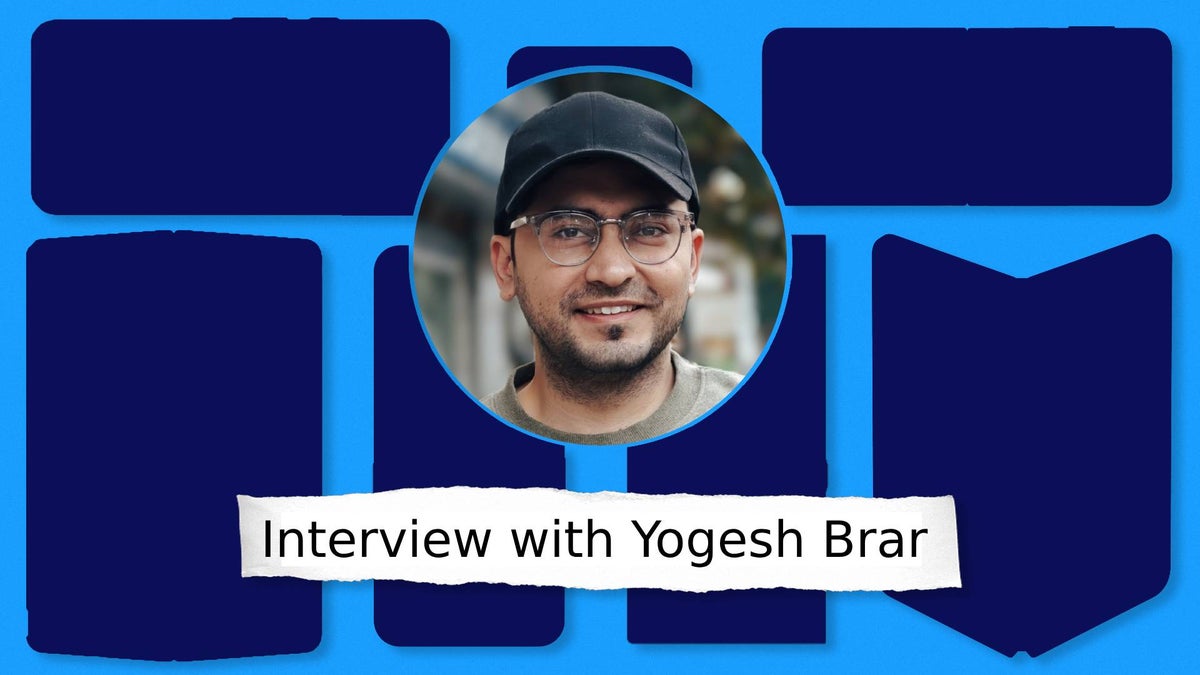
Yogesh Brar (@heyitsyogesh) is among the leading leakers in the mobile tech realm: he is known for numerous findings, predictions, spills, and disclosures long before we get to see the official thing.
For example, he spilled the beans on the CMF Phone (1)'s price way back in June.
Recently, he also predicted that Sony is making a branding shift for its smartphone image sensors. According to him, Sony will rebrand the popular IMX lineup under the newer LYTIA brand.
They call me the Tech Whisperer – fluent in both tech jargon and plain English. I spend my days building and maintaining systems, then give glimpses of upcoming tech to people by night.
--Yogesh Brar, July 22, 2024
Here's our interview with Yogesh Brar!

Image credit - Yogesh Brar
What does a work day in the life of Yogesh Brar look like?
"My workday can vary depending on my project phase and my client's specific needs. Mornings usually start with an update on the workflow from teams and looking at the project requirements. Then, a good chunk of the day is dedicated to client meetings – this could be anything from initial consultations to full-blown strategy discussions. In between meetings, I'll be diving into data analysis to writing reports."
"Post this I contribute to a bunch of Tech publications, which includes diving into product reviews, researching for stories, checking up on sources, and more. Overall, it's a dynamic environment that keeps me on my toes!"
What motivates you to share information about upcoming mobile tech?
"The biggest motivator here would be the passion for tech. This is a fast-paced industry with some really interesting things happening in the background. I just want to share all that with like-minded folks and have had some success in doing that. I’ve gained a tight-knit community that is very much invested in tech. The other motivator is the ability to test out new tech before it reaches into the hands of millions and knowing that your inputs were probably put into making it better gives you that feel-good factor."
How did you get started with what you do, and what was your first major leak?
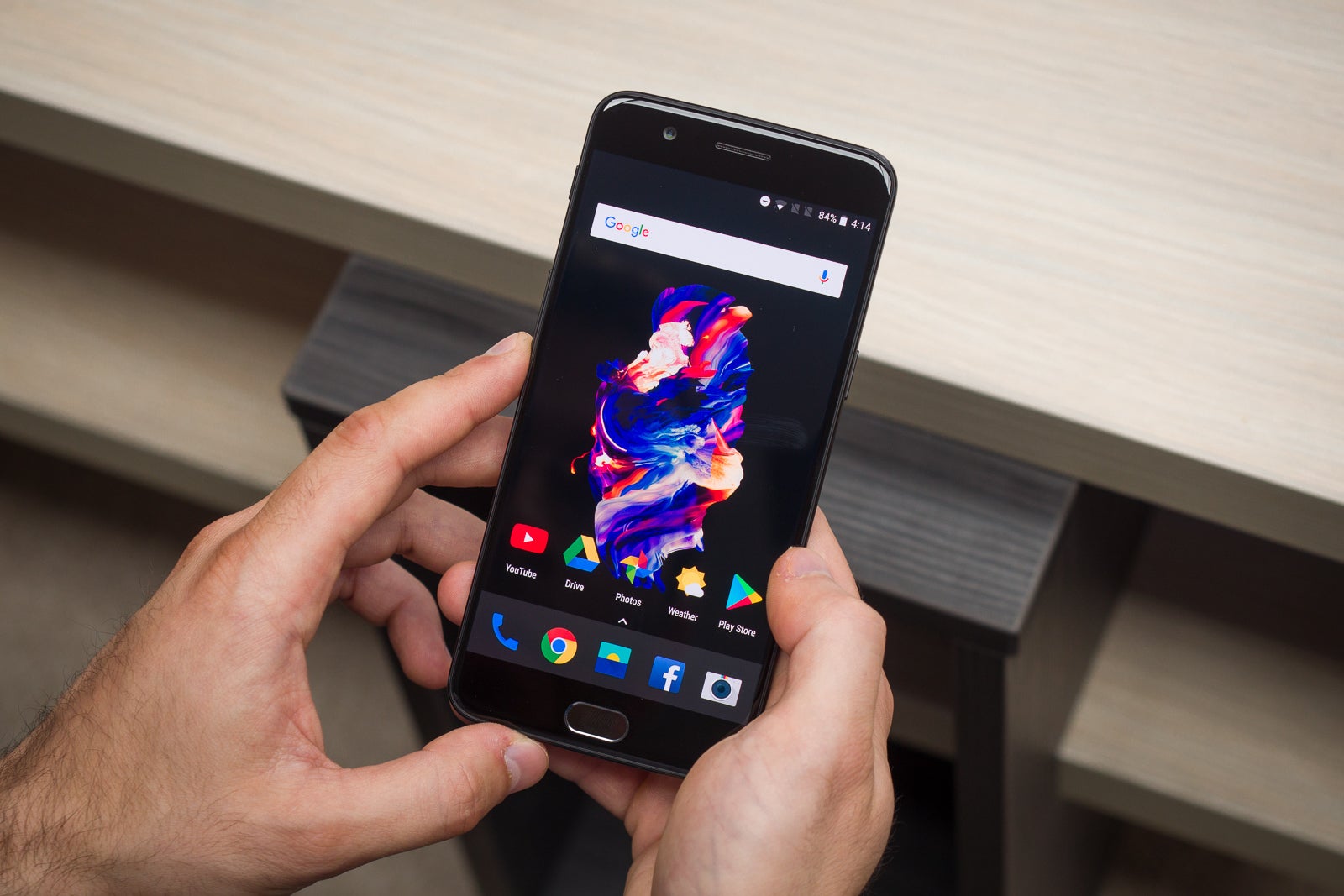
Brar's first major leak had to do with the OnePlus 5. | Image credit - PhoneArena
"I have been sharing my insights on consumer tech for the last 5 years but the prominence you see these days only picked up in late 2022. My first major leak was about a OnePlus product. I had gotten my hands on a pre-production unit of OnePlus 5 and had leaked its design renders. Luckily the story popped off and introduced me to the world of consumer tech leaks."
What aspect of the mobile tech market excites you the most right now?
"Right now, what excites me the most isn’t a specific technology, but an amalgamation of things. It's good to see that OEMs are finally focusing on improving the basics, like long battery life, seamless software updates, and intuitive interfaces. As the smartphone update cycles are getting stretched out beyond 24 months, it's about time brands focus on these aspects."
"Beyond this, I'm closely watching the whole AI integration on both iOS and Android and how brands could deliver useful AI features onto their smartphones. There are endless possibilities for this tech to mature and it will definitely change the way we interact with our phones."
Do you have a favorite brand or model of mobile device, and why?
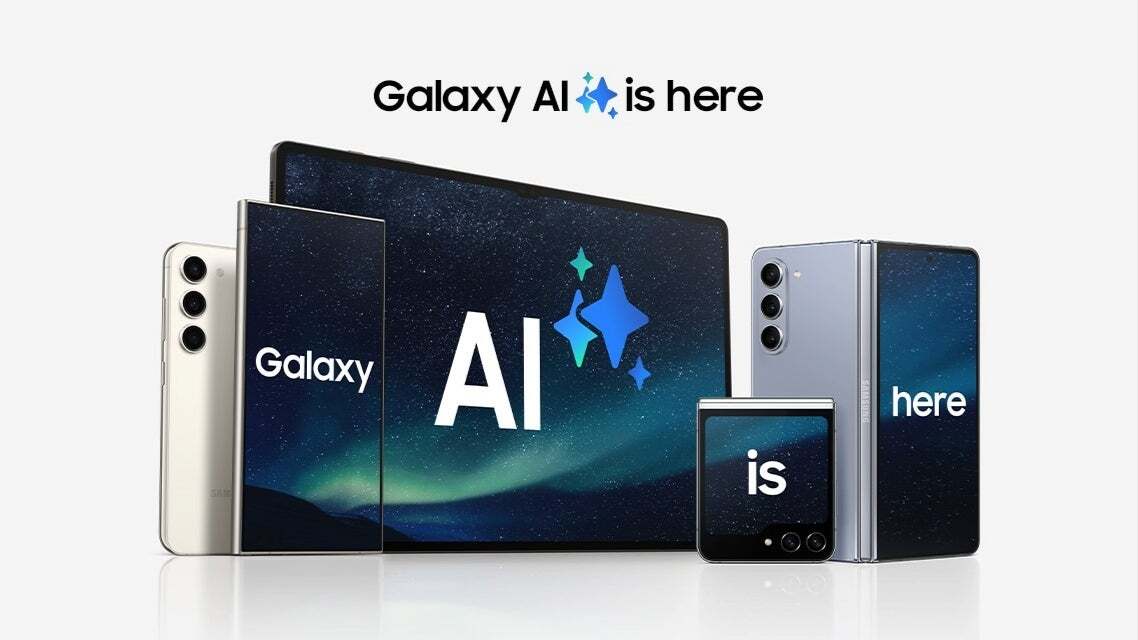
Yogesh likes Samsung's AI approach on the Galaxy S24 series. | Image credit - Samsung
"It's hard for me to pick a brand or a particular product. I believe that no product is perfect, you just have the pick one that has the least number of flaws. I do like how some brands have matured and delivered quite good offerings this year."
"For example, look at the camera experience that the Vivo X100 Pro and X100 Ultra deliver. Similarly, I liked Samsung’s AI approach on the Galaxy S24 series. In terms of foldables, both Honor and Vivo delivered excellent foldables this year."
How do companies typically react to your leaks? Do they see it as free publicity or a breach of confidentiality?
"There is no standard response from brands towards leaks. Sometimes they'll deny everything in sight, downplaying the leak's accuracy. Other times, a leak becomes a tool for them to get the hype going, giving them free publicity. But for critical leaks, things can get messy with legal threats flying around."
"There is another side to this story as well. I have seen some brands very chill about leaks and they play them to their advantage. There have been instances where brands have deliberately slipped in leaks to big-name leakers in the industry to get the hype train moving and get constructive feedback for an unreleased product."
Do you think that smartphones have "plateaued"? Many believe phone innovations are not that appealing anymore with phone releases that often.

You can see the rise of camera-centric smartphones, Yogesh argues. This is the Oppo Find X7 Ultra. | Image credit - PhoneArena
"I see two arguments for this statement. For one, smartphones are getting subtle improvements that might not feel groundbreaking to consumers. We have moved past significant leaps and are instead seeing incremental bumps in camera megapixels, processor speeds, and battery life. Now this is mainly due to the maturing market."
"The second argument is that we are now seeing specialised products that are targeting a certain section of buyers. For example, you can see the rise of camera-centric smartphones, then there are foldables for that power user who likes to experiment, and then there are gaming phones. So there is no clear answer to this question as both the arguments hold."
Is the AI phone – a phone that does not have apps, but an almighty integrated AI model – coming? Earlier this year, a Deutsche Telekom CEO said that "in 5–10 years from now, nobody from us will use apps anymore".
"Coming from someone who has a background in both the technologies being talked about here, I think the idea of an AI phone, that only relies on an AI model is fascinating but is also a bit far-fetched on the 5-10 year timeline."
"I believe the Deutsche Telekom exec here is downplaying the role and potential of apps in the current smartphone scene. You can’t here replicate that level of flexibility and diverse nature through an AI model. I do see a future where AI assistants become much more powerful and integrated, but significant advancements in AI are needed for that to work.
A more realistic timeframe for a truly AI-powered smartphone might be closer to the 10-15 years mark."
What's the state of the foldables in 3 to 5 years? Do you think this is the next big thing?
"I feel like foldables haven’t reached their peak till now. They had a good start but then things fell through with limited players in the market leading to stagnation. Right as we speak, OPPO and Vivo both have put their clamshell foldable projects on hold due to unsatisfactory sales figures."
"The hardware costs for these projects are high leading to pricer products and after-sales. Plus foldables are still fragile products compared to regular candybar phones and need to be babied around."
"I see foldables performing the same in the next 3 years as how we see them right now. Of course, Apple’s entry into this space will drive up the demand but till then we will have to sit tight and hope that Android OEMs don’t pull out of this segment completely."
If you had to choose between a book style foldable or a so-called "clamshell", what would you choose?
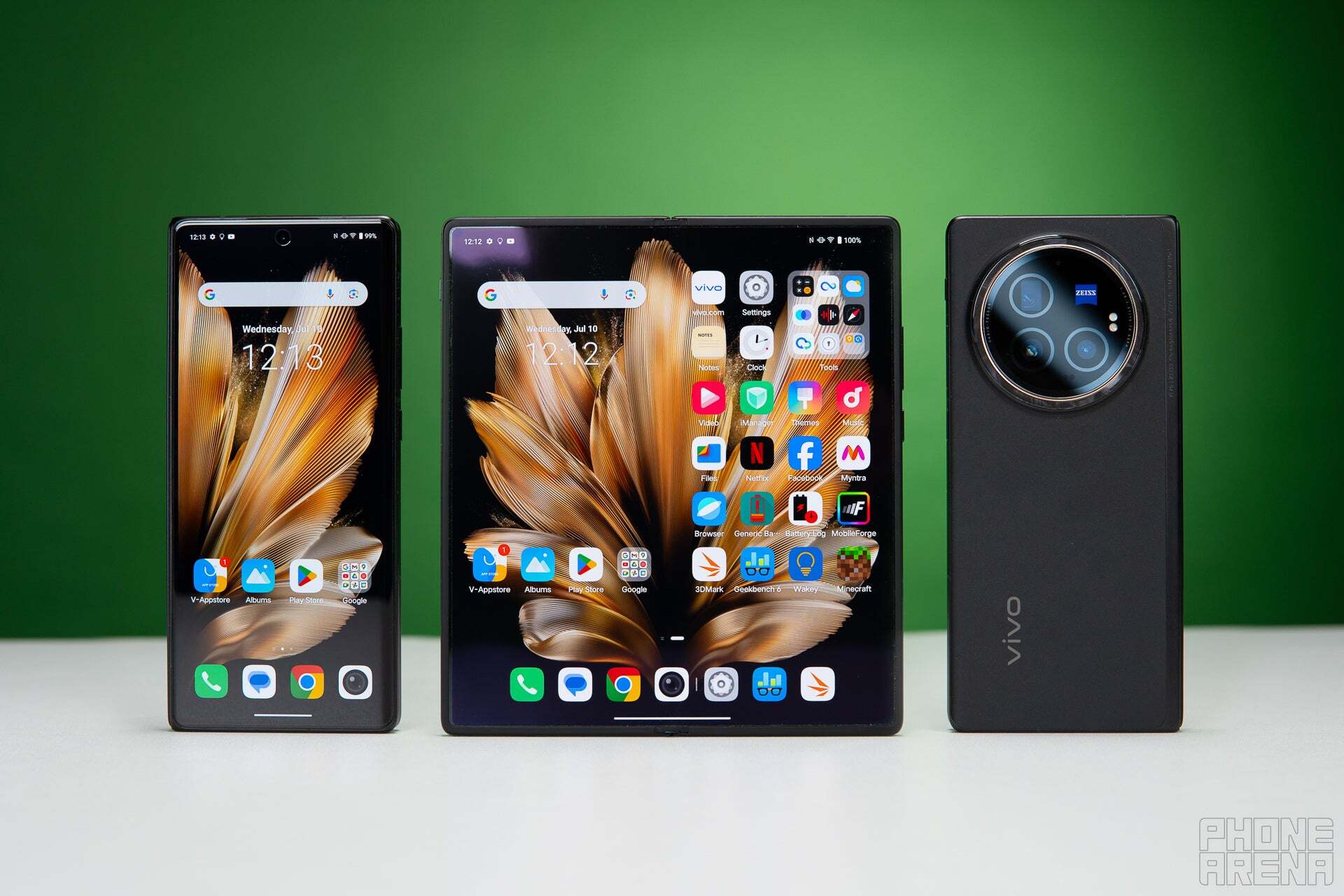
The Vivo XFold 3 Pro is Brar's current daily driver. | Image credit - PhoneArena
"After using both form factors, I would go with the book-style foldable. In fact my current daily driver is the Vivo XFold 3 Pro. The book style form factor gets you more real estate to carry out work, also in the newer folds the implementation of the cover screen has been done quite well."
Can you share the most surprising or crazy experience you’ve had related to leaking information?
"Like I said, doing leaks is like a rollercoaster ride. For some leaks surprisingly brands have been very chill and for others, I have been threatened with legal repercussions. So my experience has been all over the place, can’t really pinpoint one right now."
Have any companies ever approached you to ask you to stop leaking or to take down specific posts? If so, how did you handle it?
"In this leaks game, you learn to navigate choppy waters. There is this urge to be the first to break news, but you must also be responsible. Knowing when to hold back and when to hit publish is what separates the good leakers from the reckless ones. And these days, I’m seeing more reckless ones in the market."
"So yeah, companies have definitely come knocking sometimes, to get the posts down. To be fair with you, yes I have accepted their requests. See, not all leaks are equal, and with leaks, you are essentially egging on the marketing build-up that the company may have thoughout for a product. Sometimes these leaks prove to be very expensive, so there's room for compromise. Taking down a leak builds more trust in the long run."
If you could change one thing about the mobile tech industry, what would it be and why?
"Most smartphones in the mid-range segment are more than capable of running through most tasks and can work for more than 36 months easily. The only limiting factor is the software. I would like to see a standard software update mandate given by Google, which OEMs should adhere to. Qualcomm is working on a feature that will help OEMs to quickly send out updates to phones thereby reducing the workloads. This could be a gamechanger feature if implemented in the right way. Another would be interoperability between both iOS & Android. I know it's a long shot, but this is something I hope happens by the end of this decade."
What’s your favorite leak that you’ve ever shared, and why is it significant to you?
"I have done like 100+ leaks by now, and honestly, it is quite hard to pinpoint one. But the first few leaks have the most sentimental value. This includes leaks about the OnePlus 5, right from the renders, to the full specsheet and the pricing."
What trends do you see emerging in the mobile tech market in the next few years?
"I think there will be several changes in the market. The biggest will be the push towards sustainability. Repairability and use of recycled materials will take center stage. More brands will opt for self-made chips and this will somewhat break the MediaTek - Qualcomm duopoly. We will be seeing more niche phones in the market at the same time foldables will hit their maturity phase. The use of AI will be more prominent, and this does not mean only AI assistants. Phones might even blur the lines with PCs, offering desktop-like functionality when connected to larger displays."
What’s next for you in your journey? Are there any upcoming projects or changes in how you operate? Or should we just expect more of the same: top insights and important early findings?
"People know me for spilling the beans on unreleased smartphones, and that's not stopping anytime soon. But the tech world is vast, and it's time to explore beyond phones. In the coming days/weeks, I will be shifting my focus towards semiconductors as well. AI would be the next frontier. Past that I will be putting out more in-depth takes on the consumer electronics market, on the whole, covering all the nitty grities. You might also see me moving to other platforms as well for a more richer content."
Follow us on Google News





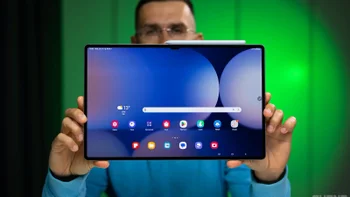




Things that are NOT allowed:
To help keep our community safe and free from spam, we apply temporary limits to newly created accounts: